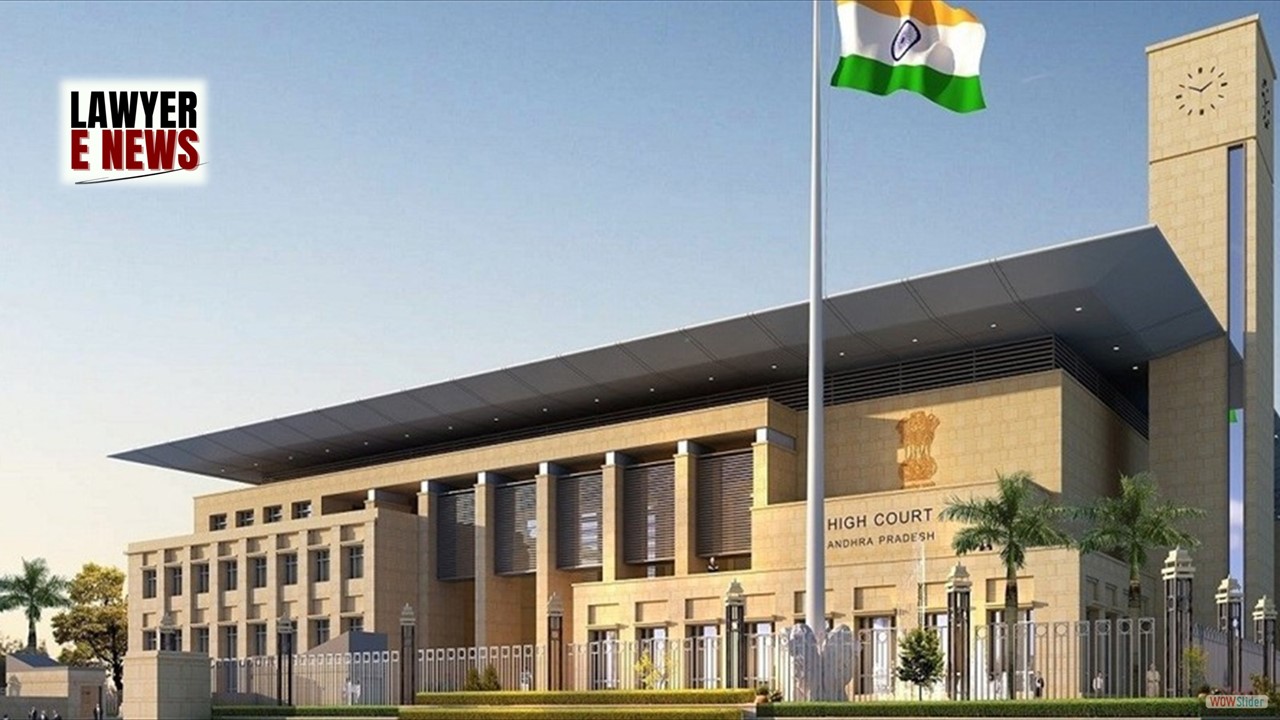-
by Admin
15 February 2026 2:16 AM



High Court Overturns Trial Court’s Rejection of Electronic Evidence in Child Sexual Offense Case
Amaravati: In a significant ruling, the High Court of Andhra Pradesh has overturned the trial court’s decision to deny the accused the opportunity to present electronic evidence in a case under the Protection of Children from Sexual Offences (POCSO) Act. Justice Dr. V.R.K. Krupa Sagar emphasized that the trial court’s refusal to accept the defence’s electronic evidence was legally untenable and resulted in a miscarriage of justice.
The criminal revision case (CRLRC No. 506/2024) involves the petitioner Vemula Ramesh, who is facing charges under various sections of the POCSO Act, the Indian Penal Code (IPC), and the Scheduled Castes and Scheduled Tribes (Prevention of Atrocities) Act. The charges include serious allegations such as sexual assault and related offenses.
During the trial, the accused sought to present electronic evidence, including WhatsApp screenshots, photographs, voice call data, call recordings, videos with audio, and SMS messages to support his defence. These were intended to prove his innocence and challenge the prosecution’s case.
The trial court dismissed the defence’s petitions (Crl.M.P.Nos.910, 911, and 912 of 2023) on the grounds that the accused did not produce the electronic evidence before his own examination and argued that in cases of child abuse, the consent of the minor was irrelevant, thus rendering the proposed evidence unnecessary.
Justice Dr. V.R.K. Krupa Sagar found the trial court’s reasoning flawed. Citing the Supreme Court’s ruling in Gajendra Singh v. State of Rajasthan (1998), Justice Sagar noted that an accused cannot be denied the opportunity to produce documents merely because they were not submitted before the accused’s evidence was recorded.
The High Court ruled that the trial court's dismissal of the petitions on the basis of non-relevance and timing of the evidence submission was a misapplication of legal principles. It emphasized that the right to a fair defence is paramount, especially in serious offenses where the accused faces a reverse onus under Section 29 of the POCSO Act.
Justice Dr. V.R.K. Krupa Sagar stated, “The view taken by the trial court that the accused before giving his own evidence did not produce the electronic evidence, which is mentioned in the petition, is not acceptable at law. The dismissal of defence evidence without just cause amounts to a miscarriage of justice.”
The judgment underscored the importance of allowing the accused to present a complete defence. It highlighted that in cases under special enactments like POCSO, where certain presumptions operate against the accused, the trial court must ensure that the defence is not unjustly handicapped. The High Court found that disallowing the electronic evidence prematurely was tantamount to prejudging the case and compromised the fairness of the trial.
The High Court’s decision to set aside the trial court’s order and allow the defence to present its electronic evidence is a pivotal moment in the case. This ruling reinforces the judiciary’s commitment to ensuring fair trials and upholding the rights of the accused, even in the context of grave allegations. The case will now proceed with the defence being given the opportunity to present its full evidence.
Date of Decision: July 26, 2024
Vemula Ramesh v. The State of Andhra Pradesh
